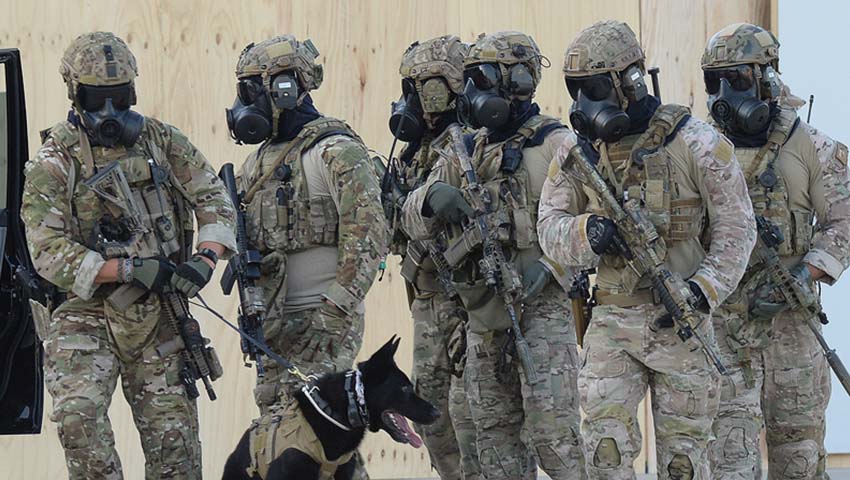Veterans often face a troubling transition from their time in uniform. As Australia’s defence industry continues to develop and the national economy continues to evolve, veterans will play an important role in the future of industry, drawing on experience and skills developed during their service.
With $200 billion worth of expenditure to be invested as part of the largest recapitalisation and modernisation program for the Australian Defence Force during peace time set to transform Australia's defence capability and broader defence industrial base, the nation's veterans will come to play a powerful role in supporting the success of the 2018 Defence Industrial Capability Plan.
However, transitioning veterans into a post-service career is an important part of helping the defence industrial base and the broader Australian economy to take advantage of the unique skills, experience and mindset that sets veterans apart. That is where organisations like Wandering Warriors come into play, supporting Australia's veterans and preparing them for the next step in their life.
In this edition of On Point, Defence Connect spoke with Mike Whitelaw, director and the NSW manager of Wandering Warriors, to discuss the support provided by the organisation and the role Australia's veterans can play in the future of the corporate world.
Lets start with a brief introduction of Wandering Warriors and the niche cache of Australian veterans it supports.
Wandering Warriors was born in about 2012 through some work with the Special Air Service Association or SAS Association, dominantly out of Queensland, but grew nationally quite quickly. Around then the need was identified for some support mechanisms, network mentoring and creating opportunities for Special Forces, in particular, people that were in the process of or recently transitioning out of Defence. We realised that we had a unique set of skills, connections in the community, and quite a broad offering, and wanted to somehow facilitate or support veterans making that jump out into the civilian world.
We know that veterans bring a unique set of skills and experience to the table when they transition to a civilian career, what are the hurdles you have seen and experienced first-hand, and what are the skills which helped you navigate these challenges?
For me there was an initial focus on what does a good CV or resume look like? The first cut of mine, I always remember was full of acronyms, dates, deployments, unit names. That meant nothing on the outside, or not didn't mean anything, just would not have been understood.
I did actually go and get some professional help and went through a couple of iterations and getting my CV written properly by somebody that understood defence skills terminology, and helped make that something more meaningful, that prospective employers would see as adding value to their organisation.
For me, I think some of the key skills that come out are planning. There's an ability to focus on the mission or the objectives, or the corporate vision, or goals now. Break that down into bite-size chunks and plan around those chunks, those particular activities, initiatives, projects and the like.
So, I think there's a strong ability to keep your eye on the mission and the end game, but make progress through smaller bite-size projects and chunks, and delivery of work during day-to-day activities.
The other part I find is around the leadership element. Coming from that defence environment, regardless of what rank you got to, what service you're in, there's embedded leadership skills, that ability to look after each other, to understand each other, to prioritise resources, as you say, to communicate well and translate that into results. So, I guess they're the key two things that I've found; those broad leadership skills and the planning or foresight, or mission focus skills as well.
Recognising these hurdles, where does Wandering Warriors fit into the equation of supporting Australia's veterans?
Wandering Warriors has I guess four key pillars to what we do. The first one dominantly is around education. In that we see a great opportunity for veterans that are thinking about, or are in the process, or have recently transitioned, formalising a qualification, giving them just some skills, some knowledge. Updating the terminology and helping build their professional network through, not just their cohort, but their broader alumni. Through that, opening doors for employment, giving them a good stepping stone or a formal way of translating those skills and knowledge.
I guess the second pillar that we focus on is around employment opportunities themselves. We've got a couple of partners out there that help with advertising particular roles focused on recruiting from within the veteran's community. There's recognition as to what a veteran may bring to an organisation, both big and small.
There's a couple of companies out there that are tapping into that and helping connect veterans with jobs out there that might suit them.
The way we like to look at it is we enable or set veterans up for success. It's not necessarily about finding a job for them and pushing them into that. It's about, I think harnessing their energy and giving them a little bit of purpose, particularly through some of the formal training, both the MBAs and the graduate certificates in business admin that are on offer through Wandering Warriors, that sets them up for long-term success.
It's not just about, "Yeah, you've got one foot out the door from Defence. Let's find you a role quickly. It doesn't matter if it's a close match or a good match. Let's just get you in a role." We're more focused on that long-term success and setting veterans, and their families, up for a secure and enjoyable future.
You can listen to the full podcast with Mike Whitelaw, director and the NSW manager of Wandering Warriors, here.


